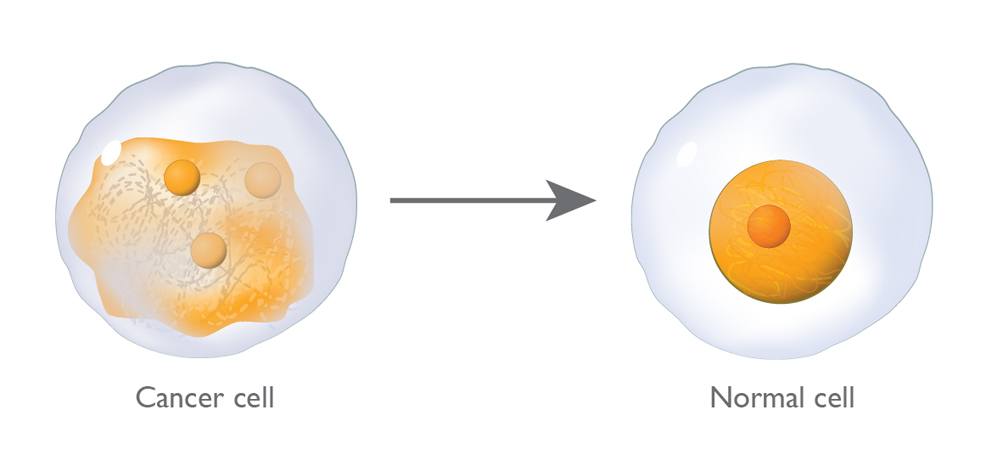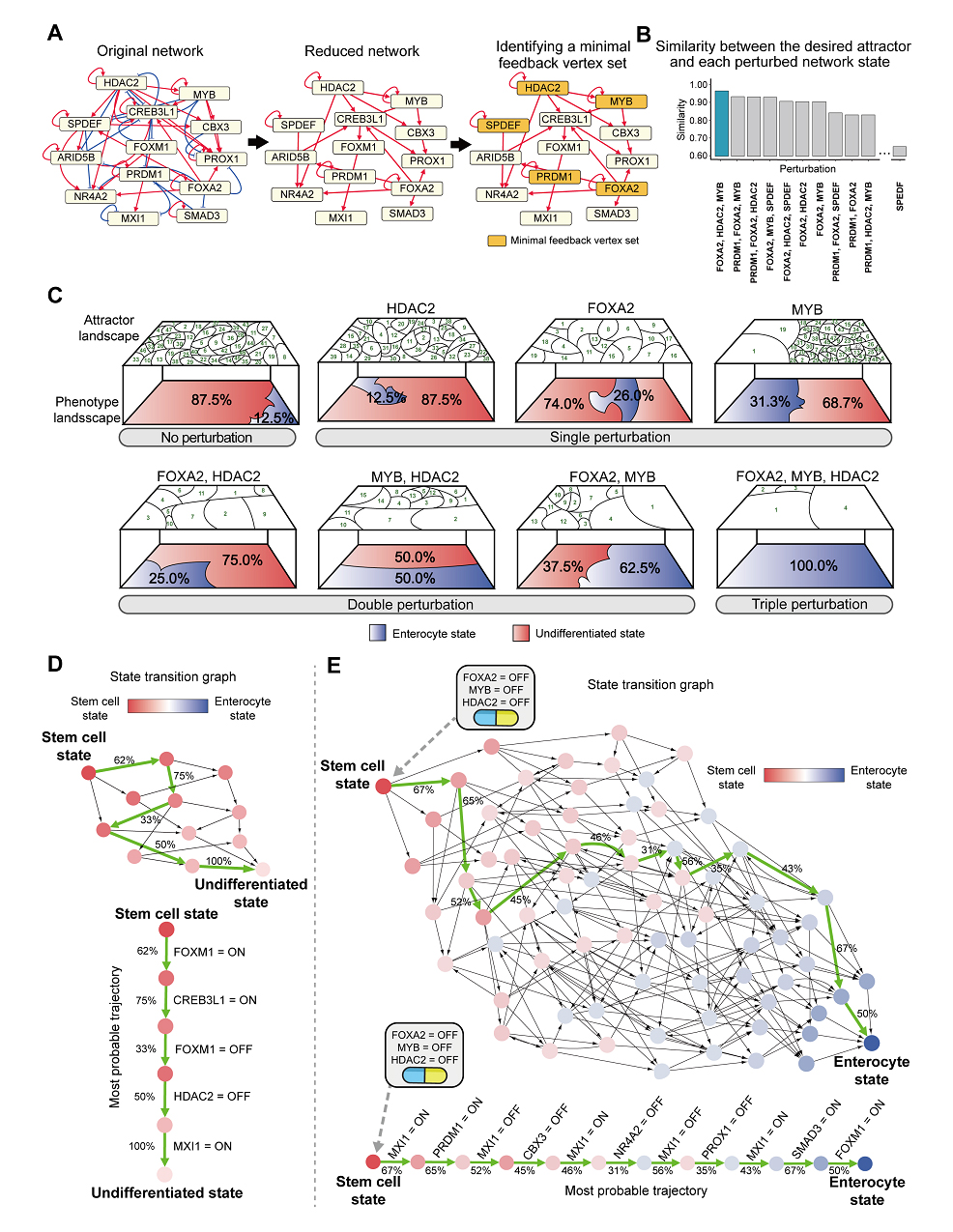Researchers in South Korea have demonstrated a way to revert cancer cells back to normal, healthy cells, using simulations to identify master molecular switches involved in cell differentiation.

Today, the goal of most cancer therapies is to eliminate cancer cells. This approach, however, faces fundamental limitations, including cancer cells developing resistance and returning, as well as severe side effects from the destruction of healthy cells.
Now, a team at the Korea Advanced Institute of Science and Technology (KAIST) has developed a groundbreaking new technique. Their study, which is published in the journal Advanced Science, can treat colon cancer by converting cancer cells into a state resembling normal colon cells without killing them, thus avoiding side effects.
The research team focused on the observation that during oncogenesis (the process by which a cancer begins to form), normal cells regress along their differentiation path. Building on this insight, they created a "digital twin" of the gene network associated with the differentiation trajectory of normal cells.
Through a detailed model, the team identified master molecular switches – MYB, HDAC2, and FOXA2 – which are seen in the diagram below, and which induce normal cell differentiation. When these switches were applied to colon cancer cells, the cancer cells reverted back to a normal-like state, a result confirmed through molecular and cellular experiments, as well as animal studies.

"This research demonstrates that cancer cell reversion can be systematically achieved by analysing and utilising the digital twin of the cancer cell gene network, rather than relying on serendipitous discoveries," the team writes. "The findings hold significant promise for developing reversible cancer therapies that can be applied to various types of cancer."
Professor Kwang-Hyun Cho, who led the study, remarked, "The fact that cancer cells can be converted back to normal cells is an astonishing phenomenon. This study proves that such reversion can be systematically induced."
He further emphasised, "This research introduces the novel concept of reversible cancer therapy by reverting cancer cells to normal cells. It also develops foundational technology for identifying targets for cancer reversion through the systematic analysis of normal cell differentiation trajectories."
By FutureTimeLine









